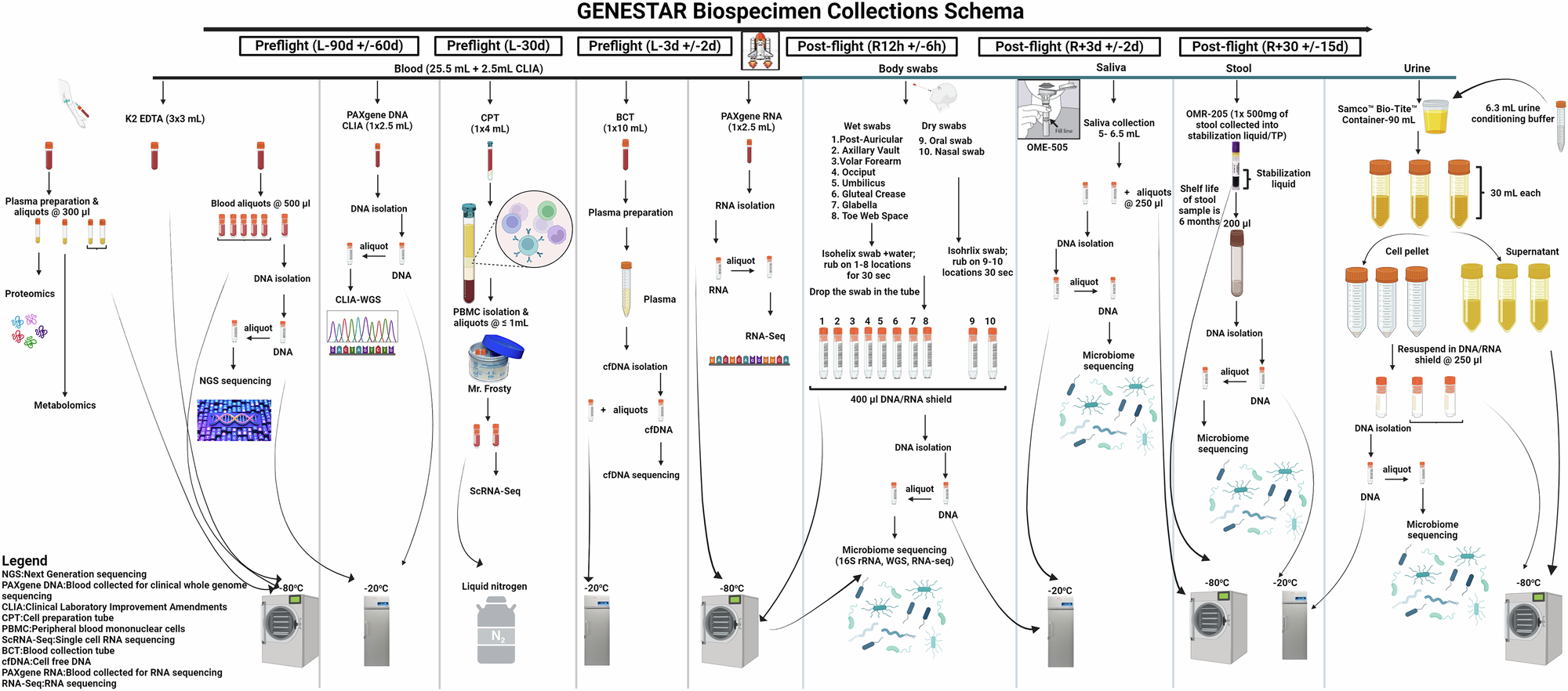Abstract: As commercial space travel expands, understanding how spaceflight impacts human health is more important than ever. However, collecting and analyzing biological samples from space travelers presents unique challenges due to the small number of participants and the complexities of space conditions. To address this, scientists developed the GENESTAR manual, a comprehensive guide that standardizes the collection, processing, and storage of blood and other biospecimens from spaceflight participants. This manual ensures that samples are consistently of high quality, enabling reliable genetic and molecular research that can uncover the effects of space travel on the human body.
The GENESTAR manual was successfully tested during the Axiom-2 mission, where 339 biospecimens were collected using its protocols. Impressively, 98% of blood samples and over 91% of non-blood samples passed strict quality control checks, confirming the manual’s effectiveness in challenging spaceflight environments. By providing a clear and standardized approach, the GENESTAR manual lays the groundwork for more robust and comparable studies in space medicine, enabling researchers to better protect the health of future astronauts and commercial space travelers alike.
Read the full study here: Link to the Nature article.
